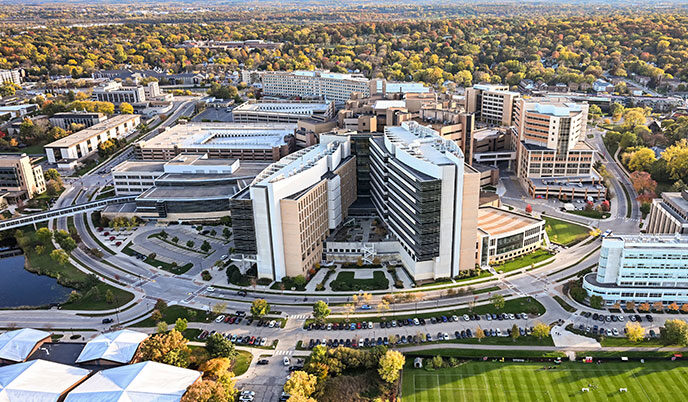
Top ten research stories for 2025
The numbers are in — the end-of-year web analytics, that is — and they show robust interest in research at the UW School of Medicine and Public Health! In 2025, articles about new discoveries and one-on-one interviews with researchers were among the most-viewed stories of the year.

Cell therapy for Parkinson’s shows promise
Parkinson’s patients are receiving a new investigational treatment thanks to groundbreaking research by Dr. Marina Emborg, a professor of medical physics in the University of Wisconsin School of Medicine and Public Health.
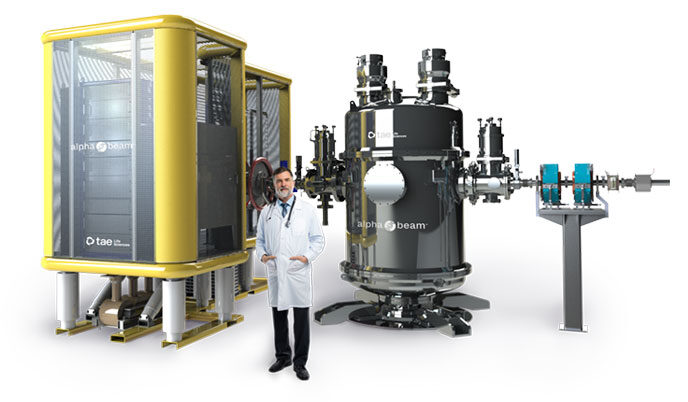
UW–Madison to lead nation in boron neutron capture therapy for cancer
The University of Wisconsin–Madison and TAE Life Sciences, a biotechnology company specializing in targeted radiation therapy for cancer care, have signed a memorandum of understanding, or MOU, announcing the intention to launch the first accelerator-based boron neutron capture therapy (BNCT) center in the United States.
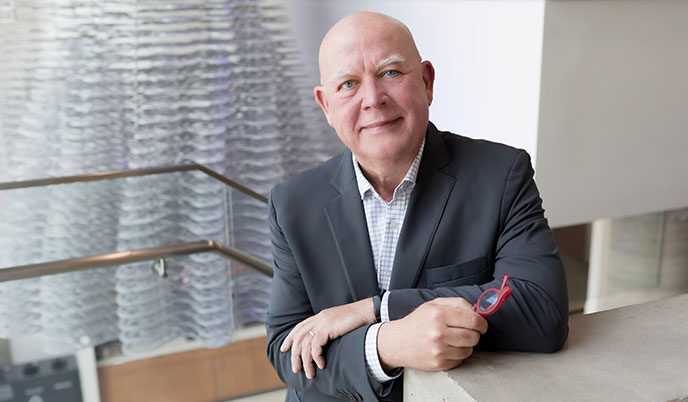
Q&A: Jacques Galipeau on cell therapies to cure disease
Dr. Jacques Galipeau is the associate dean for therapeutics development and the director of the Program for Advanced Cell Therapy (PACT), a collaboration between UW Health and the University of Wisconsin School of Medicine and Public Health that aims to bring innovative cell therapies to patients. He is also a practicing hematologist, treating patients with blood clot disorders, anemia, and other diseases and conditions.
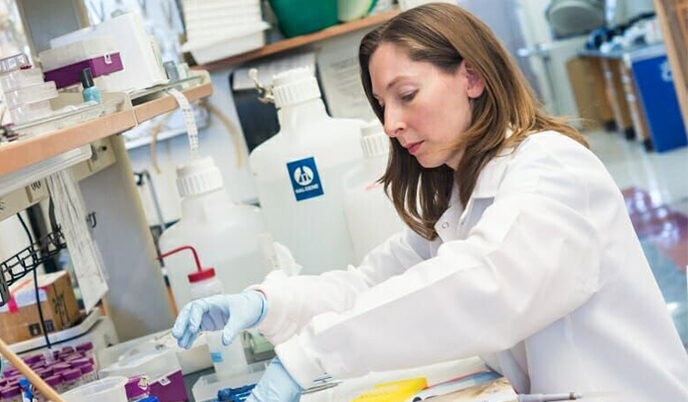
World Breast Cancer Research Day
World Breast Cancer Research Day is celebrated on the 18th day of the eighth month of the year — a reference to the one in eight women and one in 833 men who will be diagnosed with breast cancer in their lifetimes. The day is intended to amplify the urgency of preventing disease and finding cures, as well as shine a light on critical research, including studies supported by federal funding.

Freeing kidney transplant patients from daily anti-rejection medications
Kidney transplant patients are embracing a new chapter of life, thanks to a groundbreaking clinical trial that eliminates the need for a lifelong regimen of anti-rejection drugs, which can cause serious side effects.

Gene analysis helps optimize prostate cancer radiation dose
New results from two randomized clinical trials showed that analyzing a gene expression signature in tumors may help doctors customize radiation treatments for prostate cancer patients, improving outcomes while avoiding unnecessary side effects.
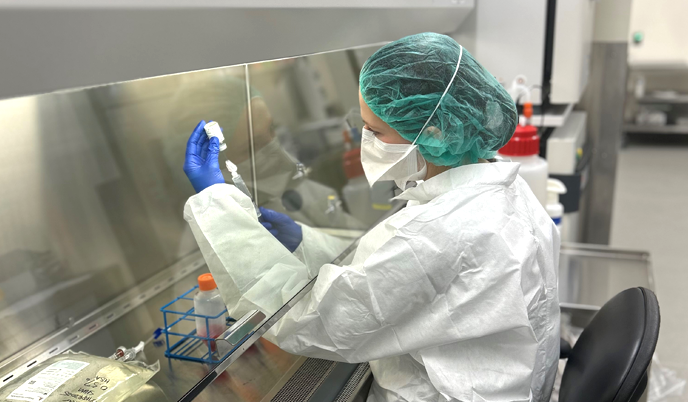
Program for Advanced Cell Therapy expands facility and cell preservation capabilities
A program at the University of Wisconsin School of Medicine and Public Health and UW Health is continuing to grow as it develops novel cell-based therapies for a variety of difficult-to-treat conditions.

FDA fast-tracks therapy for radiation-induced dry mouth
A therapy under development at the University of Wisconsin School of Medicine and Public Health to treat a common side effect of radiation therapy recently got a boost from the Food and Drug Administration.

AI screening tool helps refer patients for opioid use disorder treatment
An artificial intelligence-driven screening tool developed by a research team at the University of Wisconsin School of Medicine and Public Health successfully identified hospitalized adults at risk for opioid use disorder and recommended referral to inpatient addiction specialists.
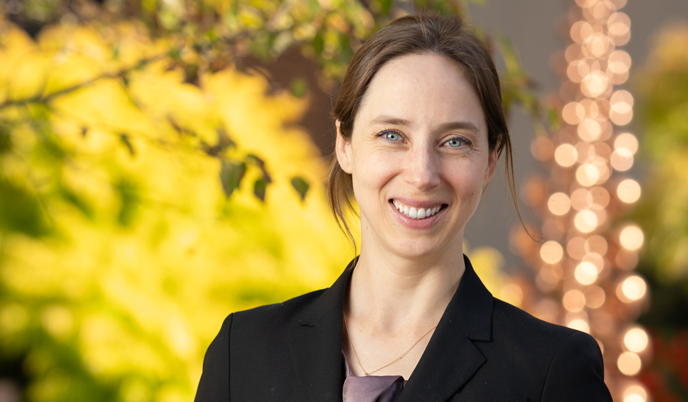
Q&A: Sara McCoy on innovative treatment for Sjögren’s disease
Dr. Sara McCoy, a rheumatologist in the Department of Medicine, is one of the nation’s leading experts on Sjögren’s disease, an autoimmune disorder that affects moisture-producing glands in the eyes, mouth and other parts of the body.
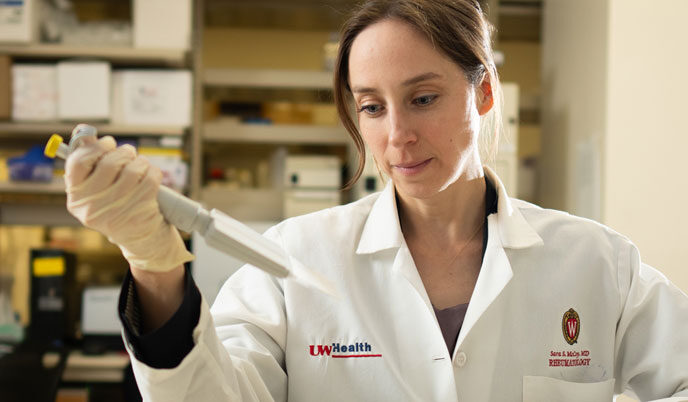
Experimental cell therapy trial treats first Sjögren’s disease patient
The first person in the world to receive a dose of a novel cell therapy for a symptom of the immune disorder Sjögren’s disease has been treated during a clinical trial conducted by researchers at the University of Wisconsin School of Medicine and Public Health.